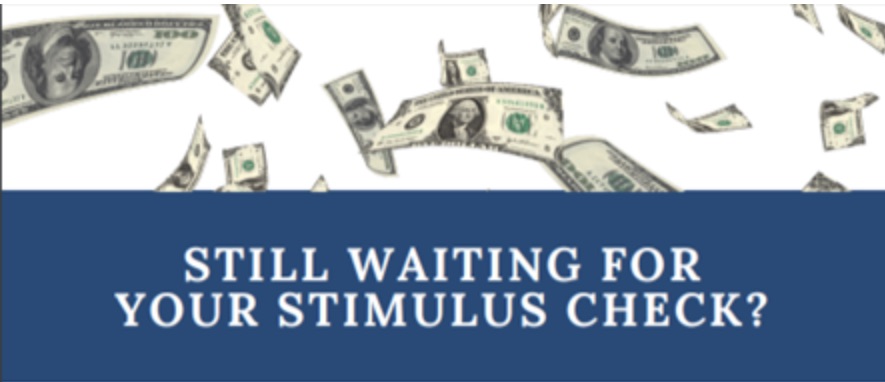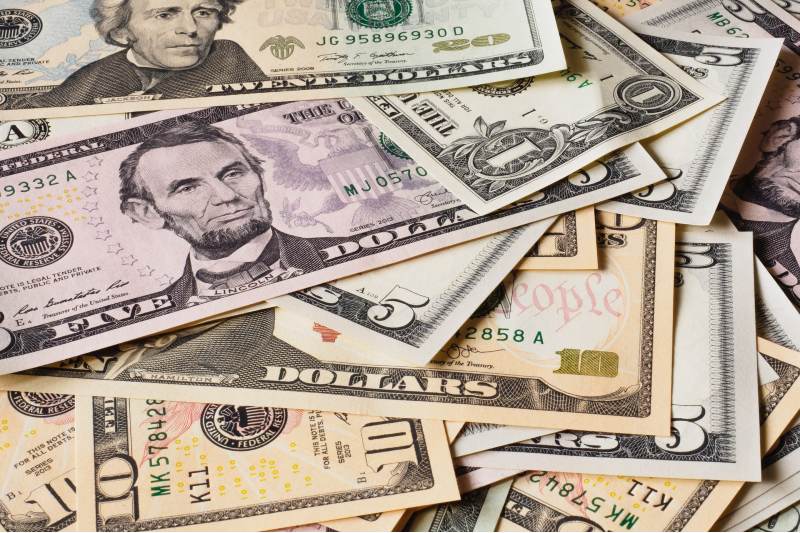This article was featured in the April 29 digital-only edition of Street Sense. Until it is safe to resume person-to-person sales, you’ll always be able to find the current digital-only edition at streetsensemedia.org/Digital Thank you for reading! Please continue to support our vendors through our mobile app (streetsensemedia.org/App).
S
timulus payments are making their way into the mailboxes and bank accounts of people across the United States after the passage of a $2.2 trillion relief bill to offset the economic impact of the coronavirus pandemic. Everyone with a valid Social Security number is eligible for some help, provided they do not earn six figures or more. Someone who doesn’t have a Social Security number, such as an undocumented resident, is ineligible.
For Americans citizens who filed either a 2018 or 2019 tax return, those payments came automatically, with some glitches and errors along the way. The first wave of direct deposits were transferred on April 11 and on April 21, Treasury Secretary Steven Mnuchin said paper checks had begun to be mailed.
As of April 28, payments had been distributed to 179,738 District residents, according to the Internal Revenue Service.
But for extremely low-income people who were already struggling before the outbreak and associated business closures, obtaining this money is more of a challenge. Many people in poverty don’t have sufficient access to banking — ruling out direct deposit. And those experiencing homelessness are frequently without a consistent address where they can receive mail.
Those concerns only matter if the IRS has the person’s information. For anyone who did not earn enough to be required to file a 2018 or 2019 return, the payments will take longer to be processed. People who receive benefits from the Social Security Administration or from Veterans Affairs will still automatically receive a deposit or check as those agencies work to share recipients’ information with the IRS. All other non-filers must proactively claim their payment through an online form on the IRS website.
“That EBT (food stamp) card can hold money and you know where to find those people because they do phone interviews every six months here to get food stamps,” one woman wrote in response to Street Sense Media’s previous reporting about the stimulus. “So again, the most vulnerable people … that need it MOST, you’re saying you can’t find them?”
She described herself as having worked as a nurse for 15 years before moving, losing her car, and becoming homeless . Nine years later, she is still homeless. The woman said she has received food stamps for most of that time, but does not receive benefits from the SSA or the VA and will not receive an automatic payment.
Catholic Charities D.C., the social services arm of the Archdiocese of Washington, had already been helping low-to-moderate-income people fill out tax returns for free through its Financial Stability Network. So when the stimulus payments were announced, it was natural that the program help low-income people and those experiencing homelessness claim their money from the IRS — and to make sure they knew it was theirs to claim.
“I can’t tell you the number of calls I take from people thinking that they’re not eligible,” said Deacon Jim Shanahan, the director of the Financial Stability Network and a former tax lawyer. “And they think they’re only eligible if they file an income tax return with the IRS. Well, that’s totally wrong. There’s a lot of misinformation going on out there.”
Many homeless Americans who qualify to get an Economic Impact Payment can use an #IRS tool to sign up for it: https://t.co/YIM9wOJ0VG #COVIDreliefIRS pic.twitter.com/Zqs2w2CbgN
— IRS Tax Pros (@IRStaxpros) April 28, 2020
Individuals are eligible for a $1,200 payment if they earned $75,000 or less, while married couples filing jointly can claim $2,400 if their combined income is $150,000 or less. For each qualifying dependent, that payment is increased by $500.
For SSA, VA, and Railroad Retirement benefits recipients who did not file in 2018 or 2019, there is a limited window of time to claim dependent children and receive the additional $500 per child while the automatic payments are being sent out. The IRS announced an initial deadline of April 22, on April 20, allowing only two days for benefit recipients to take action. However, public outcry led to an extended deadline: May 5. For anyone who misses the deadline, stimulus funds can still be collected on next year’s tax return.
The claiming process itself is relatively straightforward. Shanahan or a Catholic Charities volunteer interviews clients and enters that information into the free IRS tool designed to help people get their payments. Then they’re able to make sure the payment is sent to a bank account or a mailing address.
Shanahan said the network is working with banks to try to give clients a “second chance” if, for example, they once wrote a bad check.
The public health crisis has slightly complicated the program, though. Shanahan said eligible beneficiaries are often interviewed over Zoom and the Financial Stability Network had to get special permission from the IRS to inspect identification cards and Social Security cards over that software. If a video call isn’t possible with eligible beneficiaries, interviews are conducted over the phone and clients are walked through the process of entering their own information.
Mike Littman, who has been volunteering with the Financial Stability Network for the past few years, is grateful he has a chance to help those who are less fortunate.
“I feel like I’ve been lucky and blessed to be where I am, and I know a lot of others — due to maybe being unlucky — aren’t or haven’t wound up in a situation where they know there’s going to be food on the table,” Littman said. “I sure want to help out those kinds of folks if I can.”
Littman and Shanahan each said that one of the largest hurdles with their stimulus-assistance program is getting the word out, particularly because libraries — the ideal place to advertise the service, Shanahan said — are closed. This is also a barriers for individuals who would otherwise fill out the form independently. Libraries and their free computers are closed, and restaurants that provided free Wi-Fi have either closed completely or closed their dining rooms.
The Financial Stability Network’s current outreach efforts rely, more or less, on word of mouth. Flyers are being distributed to parishioners across the region so they can reach out to family and friends. And Catholic Charities is collaborating with those distributing food to the homeless to make sure that a flyer is put in their bags, as well as placing flyers in the shelters they are contracted to operate.
It’s working. On April 22 alone, 50 inquiries were made to the Financial Stability Network about stimulus checks. The situations are all different — and some are more difficult than others — but the organization remains committed to doing what it can.
“I’d been practicing as a tax lawyer for 40 years before I came to Catholic Charities,” Shanahan said, “and I’ve had more joy working with these individuals than almost 40 years [there] because the clients are so, so thrilled to be helped out.”

Those seeking assistance with claiming their stimulus payments can email the Financial Stability Network at [email protected] or call (202) 772-4300 ext. 153. In addition to claiming payments, the IRS economic impact payment page provides another online tool to check on the status of your payment.







